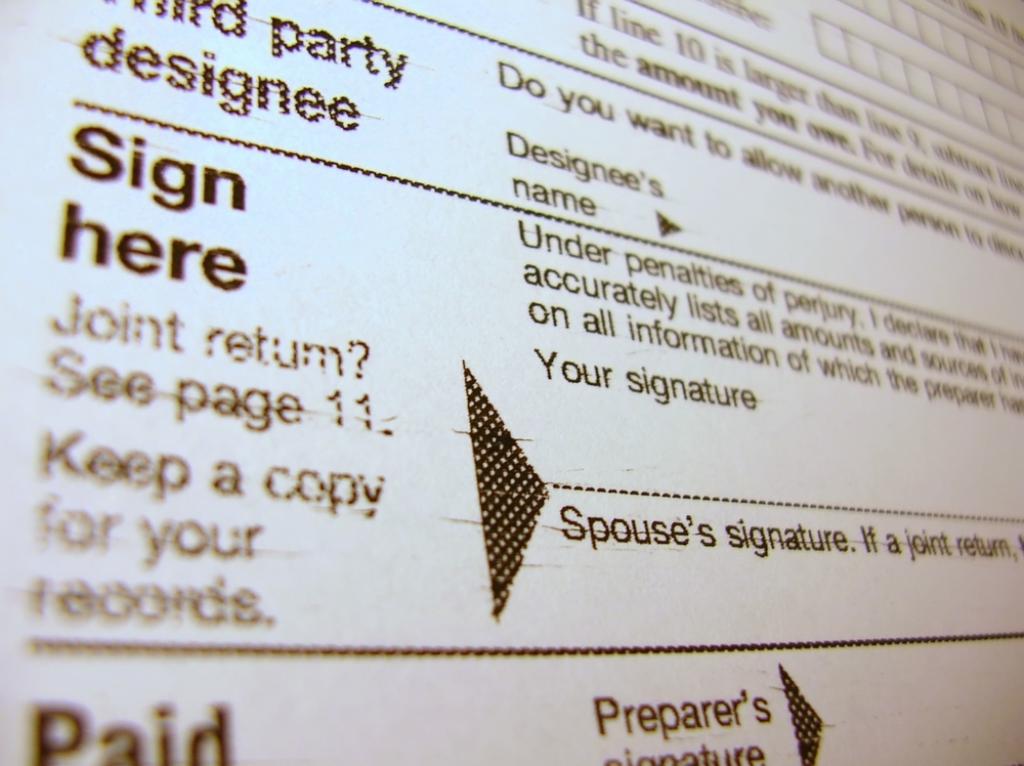
Income tax is a part of life, and this doesn’t change when you get married. Whether you file joint tax returns or file separately, there are considerations that should be made. And of course, these considerations come with questions.
One main question we receive on a regular basis is, “If my spouse owes back taxes, am I liable?” This is a fair question, and one that is worth asking. Let’s dive into the answer a little more deeply.
Am I Responsible For My Spouse’s Tax Liability?
First and foremost, there is more than one way to file your tax return. As a married couple, you might file a joint tax return. This means you and your spouse are filing a single tax return together, listing combined income, credits, exemptions and deductions.
If you have signed a joint return, then you are both responsible for the affiliated tax liability. It doesn’t matter if one of you has a higher income or more deductions. Married and filing jointly means you are combining everything together.
Therefore, in this instance, the answer would be yes. If your husband owes taxes and you have filed a joint return, you are liable. Typically, spouses are aware of these taxes though, since they are filing jointly and have a chance to review before signing.
So what about your other option, which is to file separately? Believe it or not, there are some married couples who are unaware of this option. Sure, filing jointly can save some time and keep your finances a bit more organized. This is why the option is so popular.
But there can be advantages to being married and filing separately. To stay on topic, filing separate tax returns means you are liable for yours alone. So, if your spouse owes IRS taxes, but you filed separately, then those taxes are not your burden.
While it might seem obvious at this point, married filing separately means you and your spouse each report separate tax returns. This means income, deductions, credits, and exemptions are reported on an individual basis, as opposed to jointly.
So, in regards to your question, “If my husband owes taxes do they come after me?” If you have filed separately, the simple answer is no. But this is not the only reason that couples decide to file separately.
Benefits to Filing Separately?
As a taxpayer, you understand the concept of tax brackets. Essentially, the higher your income, the higher your tax bracket. While making money is the goal of many people, paying taxes is not. And yet they go hand in hand.
However, depending on how much money you and your spouse make, it might be worth looking into filing separately. If you file jointly, you might find that you are putting yourself into a higher bracket. This could save you money throughout the year, and could warrant a tax refund.
Additionally, if you and your spouse have a sizable difference in income, filing separately might make sense as well. For example, you might individually be in separate brackets. If this is the case, there might not be a reason to lump the lower income into the higher bracket.
In some ways, this goes back to the liability question. If your spouse makes significantly more than you do, should you be responsible for additional taxes? If you file separately, whatever taxes your spouse owes the IRS will be their responsibility.
These are conversions that you should have to help you establish a tax filing option that works for you.

What About Back Taxes?
There are certainly instances of a spouse owing back taxes from a time before the marriage. People wonder if the IRS can take their money even if the liability belongs to their spouse from long ago. The short answer is no, they cannot. But, this doesn’t mean they won’t try.
Let’s face it, the IRS wants to collect on its liabilities, and is satisfied regardless of who pays them. But this doesn’t mean you are liable to do so. If your husband owes back taxes and they come after you, you have options on your side.
Firstly, you have not signed or agreed to handle your spouse’s liability, so there’s really nothing to worry about. That being said, many taxpayers prefer a team of experts on their side to handle this type of situation for them.
However, even if you have filed a joint tax return, and your spouse made mistakes or misconstrued numbers, you have options. Simply put, there might have been details you didn’t know about. This is where Innocent Spouse Relief comes into play.
This type of scenario is common enough that the IRS has a program to protect you in this instance. Innocent Spouse Relief provides relief of responsibility if your spouse (or former spouse) improperly reported items on your tax return. This might mean they omitted items as well.
This typically happens when someone is self-employed and handling much of their own finances. However, it can also happen on a larger scale. Regardless of the tax burden, Innocent Spouse Relief relieves you from paying tax, interest, and penalties.
This is not the only protective option in place, but it is one of the more common avenues. There are ways to qualify for Innocent Spouse Relief by filing out various forms and providing information. But again, this is typically where taxpayers seek the assistance of tax professionals.
This isn’t because doing it on your own is impossible, but having the professionals on your side means confidence. And when it comes to tax liability, confidence is a crucial component.
Work With Tax Professionals
If your spouse owes back taxes, it doesn’t mean you are liable. This is one of many answers we happily provide our clients with. The most important part about tax responsibility and liability is knowing where you stand. With the professionals on your side, you can rest assured your tax burden is taken care of.
Reach out to us today and schedule a free consultation.
